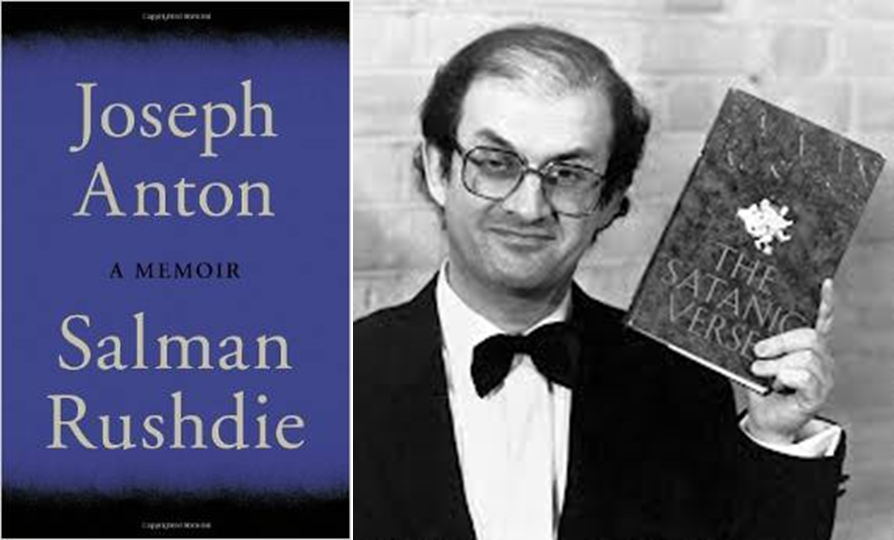This is an autobiographical work by Salman Rushdie focusing
on his hiding years during fatwa. His
book ‘The Satanic Verses’ had angered
religious fundamentalists and they wanted his head in return. The threat looked
real as the book’s Japanese translator got killed, its Italian translator was
wounded badly and its publisher was shot but survived. Salman went into hiding
moving from one house to another under the protection of UK government. Larger
segment of the literary world supported him on the basis of right to freedom of
expression but his opponents burnt the book along with effigy of the author,
even warned those who supported Rushdie. The issue became political and began
affecting the diplomatic relations between Iran and the UK. Many countries banned his book and rejected visa requests for him. All these developments
took energy and time out of Rushdie’s life but yet he refused to apologize or
take back his book. Roaming freely on his own would put his life to a quick end.
So he was suggested by the security personnel to choose an alternate name and
identity for himself. Salman worked out different combinations of first names
of authors he liked and finally he chose Joseph Anton, first names from Joseph Conrad and Anton Chekov.
Though this book is written in third person, author does
not distance himself emotionally from the central character. All his memory and
feelings rush through the pages. The use of ‘he’ instead of ‘I’ appears more
of a trick to avoid the feeling in readers of reading a diary or a journal
instead engage them by making it a novel like read. Reading ‘The Satanic Verses’ prior to this would have made one understand some of
the arguments in this book better but it cannot be bought it in India. Many book
reviews said Joseph Anton is a tough, long and boring book to read but I was hooked
into this since beginning and author’s intelligence, wit coming out in each
sentence made it an interesting, effortless and enlightening read.
This book reveals details which are not made public such as
how the security arrangements work (how one can become nonexistent), what gets
priority when two diplomats talk (not what gets reported in media), how
personal preferences of political leaders shape their decisions (rationale,
justifications come later) and the power of networking (knowing who to call
when in trouble) etc. Threat on his life did not make Rushdie lose his creative abilities, he published two books during this period but restrictions to his travel, working out security arrangements and defending his stance with politicians slowed him down. Times did turn for better for Rushdie after a decade. His visit to India was celebrated as his 'coming back home' among the literary circle. Eventually the threat receded, he was able to go around freely, and books continued to be born in him again.
No doubt Salman Rushdie is a self-centered person; he finds
supporters and opponents everywhere on this earth like no other author
does, he moves from one wife to another with ease, he critics anyone he does
not like and takes dig at all of those who did not support him during his
exile. But he does that intelligently and with a reasoning no one can ignore.
He is a good wordsmith and his literary capabilities make his private life a
good story for this book.

No comments:
Post a Comment